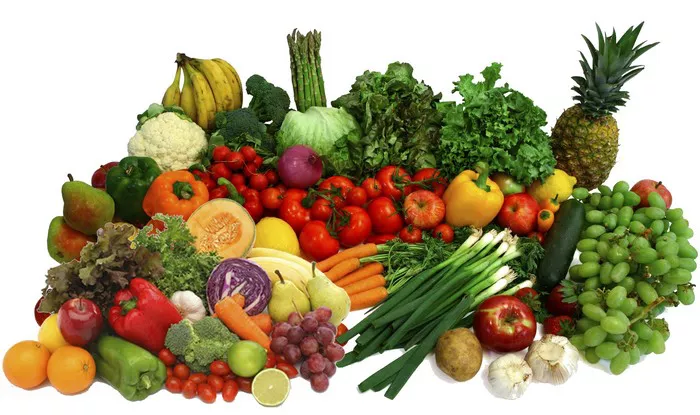Vitamins are essential micronutrients that play crucial roles in maintaining overall health and well-being. While obtaining vitamins from a balanced diet is ideal, ensuring optimal absorption is equally important. This article explores the best strategies to maximize vitamin absorption, covering factors such as dietary choices, nutrient interactions, and lifestyle habits.
Understanding Vitamin Absorption
Bioavailability
Bioavailability refers to the extent and rate at which a nutrient is absorbed and utilized by the body. Factors such as the form of the nutrient, the presence of other substances, and individual differences can influence bioavailability. Maximizing bioavailability is key to reaping the full benefits of vitamins.
Water-Soluble vs. Fat-Soluble Vitamins
Vitamins are classified into two main categories based on their solubility: water-soluble and fat-soluble.
Water-Soluble Vitamins: Water-soluble vitamins, such as vitamin C and the B vitamins (e.g., B1, B2, B6, B12), dissolve in water and are easily absorbed in the gastrointestinal tract. However, they are not stored in the body to the same extent as fat-soluble vitamins and are excreted through urine, requiring regular intake.
Fat-Soluble Vitamins: Fat-soluble vitamins, including vitamins A, D, E, and K, dissolve in fat and are absorbed along with dietary fats. These vitamins can be stored in the body’s fatty tissues and liver, making them less susceptible to immediate deficiency but potentially prone to toxicity with excessive intake.
Optimizing Vitamin Absorption
1. Choose Nutrient-Dense Foods
A diet rich in nutrient-dense foods provides a wide array of vitamins and minerals in their natural forms, which are often more readily absorbed than synthetic supplements. Incorporate a variety of fruits, vegetables, whole grains, lean proteins, and healthy fats into your meals to ensure adequate nutrient intake.
2. Prioritize Whole Foods
Whole foods contain a complex matrix of nutrients, fiber, and phytochemicals that work synergistically to enhance absorption and utilization. Choose whole grains over refined grains, fresh fruits and vegetables over processed snacks, and lean meats over processed meats to optimize vitamin absorption.
3. Pair Vitamins with Healthy Fats
Fat-soluble vitamins require dietary fat for absorption. Pairing vitamin-rich foods with sources of healthy fats, such as avocados, nuts, seeds, and olive oil, can enhance the absorption of fat-soluble vitamins A, D, E, and K. For example, drizzling olive oil over a salad or adding nuts to a smoothie can improve the absorption of fat-soluble vitamins from vegetables and fruits.
4. Consume Vitamin C with Iron-Rich Foods
Vitamin C enhances the absorption of non-heme iron, the type of iron found in plant-based foods. Pairing vitamin C-rich foods, such as citrus fruits, bell peppers, and strawberries, with iron-rich plant foods, such as beans, lentils, and leafy greens, can improve iron absorption. For example, squeezing lemon juice over spinach or adding strawberries to a spinach salad can increase the bioavailability of iron.
5. Include Probiotic-Rich Foods
Probiotics are beneficial bacteria that support gut health and digestion. Research suggests that probiotics may enhance the absorption of certain vitamins and minerals by promoting a healthy gut microbiome. Include probiotic-rich foods, such as yogurt, kefir, sauerkraut, and kimchi, in your diet to support optimal nutrient absorption.
6. Be Mindful of Cooking Methods
Cooking methods can affect the bioavailability of vitamins in foods. Some vitamins are heat-sensitive and may be lost during cooking, while others are more stable. To preserve the nutrient content of foods, opt for gentle cooking methods such as steaming, sautéing, or roasting at lower temperatures. Avoid overcooking or boiling foods for prolonged periods, as this can leach vitamins into the cooking water.
7. Consider Nutrient Timing
Timing can also impact vitamin absorption. Some vitamins are better absorbed when taken with meals, while others may be absorbed more effectively on an empty stomach. For example, fat-soluble vitamins are generally better absorbed when consumed with meals containing dietary fats, whereas water-soluble vitamins can be taken with or without food. Follow the recommended dosing instructions for vitamin supplements and consult a healthcare professional for personalized advice.
8. Monitor Medication Interactions
Certain medications can interfere with vitamin absorption or metabolism. For example, proton pump inhibitors (PPIs) used to treat acid reflux can reduce the absorption of vitamin B12, while cholesterol-lowering statin drugs may lower coenzyme Q10 levels. If you are taking medications regularly, discuss potential interactions with your healthcare provider and consider supplementation if necessary.
9. Stay Hydrated
Hydration is essential for optimal digestion and nutrient absorption. Drinking an adequate amount of water throughout the day supports the movement of vitamins and minerals through the digestive tract and helps maintain proper hydration levels in the body. Aim to drink at least 8-10 cups of water daily, more if you are physically active or live in a hot climate.
10. Avoid Excessive Alcohol and Caffeine
Excessive alcohol consumption can impair nutrient absorption and deplete vitamins and minerals from the body. Similarly, high intake of caffeine can interfere with the absorption of certain vitamins and minerals, such as calcium and iron. Limit alcohol and caffeine intake and consume them in moderation to support optimal nutrient absorption.
Supplement Considerations
When to Consider Supplements
While obtaining vitamins from whole foods is ideal, supplements may be necessary to fill nutrient gaps or address specific health concerns. Consider supplementation in the following situations:
Inadequate Dietary Intake: If you have difficulty meeting your nutrient needs through diet alone, consider taking a multivitamin or targeted vitamin supplements to ensure adequate intake.
Increased Nutrient Needs: Certain life stages, such as pregnancy, lactation, or aging, may require higher nutrient intake. Supplementing with prenatal vitamins, calcium, vitamin D, or other specific nutrients may be beneficial.
Medical Conditions: Certain medical conditions, such as malabsorption disorders, gastrointestinal issues, or chronic diseases, may impair nutrient absorption or increase nutrient requirements. Talk to your healthcare provider about appropriate supplementation options based on your individual needs.
Choosing Quality Supplements
When selecting vitamin supplements, quality and purity are paramount. Look for reputable brands that adhere to good manufacturing practices (GMP) and undergo third-party testing for potency and purity. Choose supplements that contain bioavailable forms of vitamins and minerals, and avoid unnecessary fillers, artificial colors, and preservatives. Consult a healthcare professional for personalized supplement recommendations based on your health status and goals.
Conclusion
Optimizing vitamin absorption is essential for maintaining optimal health and well-being. By making informed dietary choices, prioritizing whole foods, and adopting lifestyle habits that support digestion and nutrient absorption, you can ensure that your body receives the vitamins it needs to function optimally. Whether you obtain vitamins from food sources or supplements, following these strategies will help you maximize the bioavailability of nutrients and reap the full benefits of vitamins for overall health and vitality.
[inline_related_posts title=”You Might Be Interested In” title_align=”left” style=”list” number=”6″ align=”none” ids=”9594,9510,9507″ by=”categories” orderby=”rand” order=”DESC” hide_thumb=”no” thumb_right=”no” views=”no” date=”yes” grid_columns=”2″ post_type=”” tax=””]
































